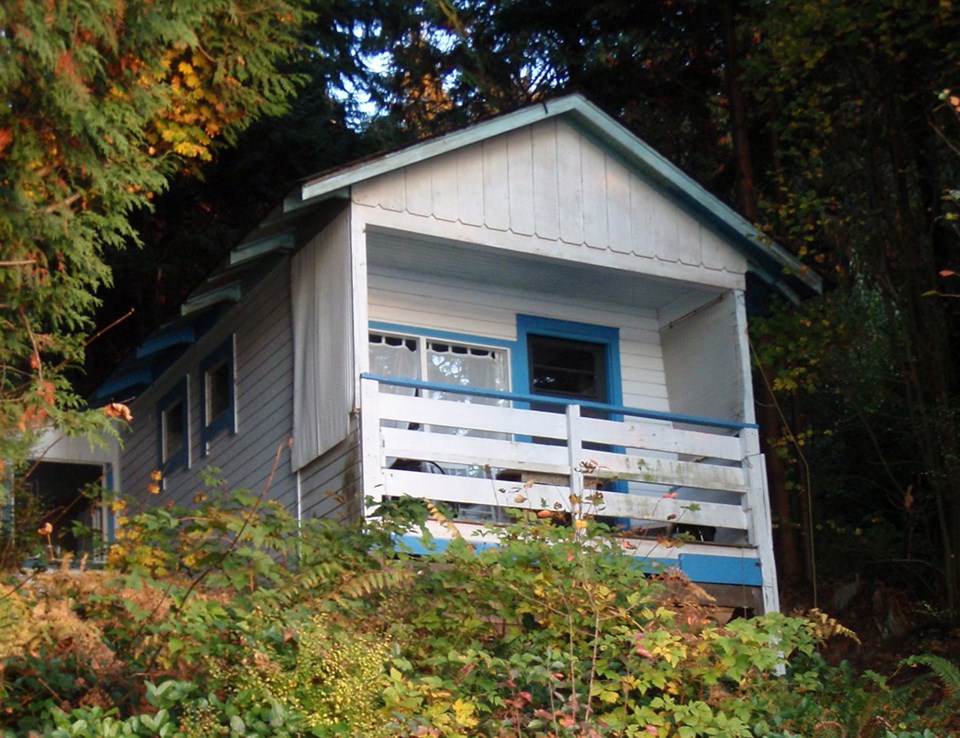A Port Moody heritage advocate is hoping at least one of seven summer cottages in the south part of təmtəmíxwtən/Belcarra Regional Park will be preserved and used as an interpretive feature.
Last Tuesday, Oct. 10, Port Moody council agreed to begin the process of repealing heritage protection for six of the cottages that are within its borders after a request from the Tsleil-Waututh First Nation that now shares management of the park with Metro Vancouver. The seventh cottage is in Belcarra.
Robert Simons, the former president of the Port Moody Heritage Society, said while reconciliation efforts to recognize and respect the ancestral home of the Tsleil-Waututh are important, the cottages' more recent past as summer homes for the family of a prominent judge, William Norman Bole, shouldn't be overlooked.
"The Belcarra South cottages are a fact of recent history that overlays the realities and consequences that we must all understand and undertake through reconciliation with the First Peoples of this land," Simons said.
"Both histories exist and my concern is neither is lost in understanding what has occurred at təmtəmíxwtən village."
In a statement, the Tsleil-Waututh First Nation said it wasn't consulted when the cottages were first constructed, nor when Port Moody granted them heritage status. It said it will be working with Metro Vancouver to restore the foreshore as well as turn Bole's original home into a multi-purpose facility"“that will have cultural, artistic and educational components."
Metro Vancouver said it's keen to work with the Tsleil-Waututh to reconnect them to the park, including development of the south picnic area where the cottages are located.
The project will "focus on opportunities for Tsleil-Waututh knowledge-keepers, storytellers, artists, elders and youth to be part of the design process and provide input on future land use and interpretive element planning for the area."
While a current vision includes provisions to retain the cabins as static displays, their deteriorating condition could change that.
"All of the cabins are in poor condition and there would be an extensive cost to ensure their structural integrity," said a statement from Metro Vancouver.
Simons said he's afraid the cottages, which were occupied year-round by lease-holders until 2021, may have fallen through the cracks since they were vacated as the heritage designation they were granted in 2015 didn't specify any standards for ongoing maintenance. He said they should have been mothballed to limit deterioration.
Simons said the tension between preserving the recent past and ancestral First Nations' history isn't unique to the Belcarra cottages.
"Heritage preservation has not dealt well with reconciliation," he said. "The subject in many cases has not even been addressed."
Simons said all entities with a stake in heritage have to be more cognizant "of the true timeless history of our country."
Metro Vancouver, which formalized an historic agreement with the Tsleil-Waututh three years ago to share management of təmtəmíxwtən/Belcarra Regional Park, said it's aiming to do just that.
"Recognizing that advancing truth and reconciliation with Indigenous Peoples is a process that starts with listening and learning together," the regional administrative board said, adding it’s "committed to strengthening relationships with First Nations based on trust and working collaboratively towards shared goals."
A public hearing to give Port Moody residents a chance to speak about the possible repeal of the cottages' heritage protection has yet to be scheduled.




